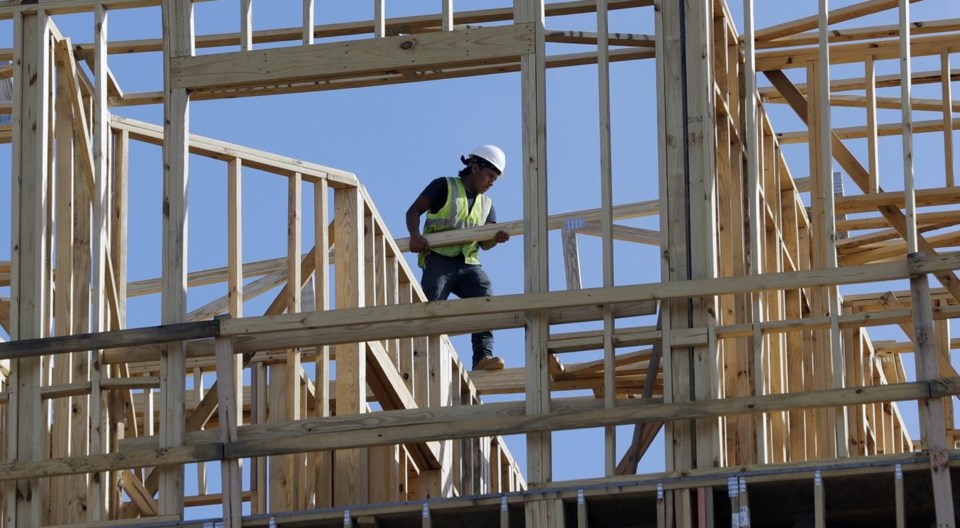We owe Darren MacDonald a debt of gratitude. He digs enthusiastically into highly important stories, even if the importance of those stories aren't always easy to digest.
That’s par for the course for us. The Sudbury.com newsroom is always bemused by the stories that get a lot of eyes and those that don’t. Important stories, stories that probably aren’t all that “sexy” you could say, but concern topics taxpayers should be aware of, often don’t do as well as they should.
Case in point, MacDonald’s coverage of the city’s development charges and city council’s current public consultation on whether to cut those charges in half.
It’s an important story that could have long-term impacts on, for instance, the property tax you pay. MacDonald has done a couple of excellent stories over the past month that explain the city’s rationale for contemplating cutting the rate, and also explore the connection between development charges and new home construction.
Put simply, development charges are fees builders pay to help cover the cost of new municipal infrastructure required by the construction of new buildings: roads, sewers and the like. The rationale makes sense. If new builds require new or upgraded infrastructure, taxpayers shouldn’t have to cover the cost of that infrastructure alone.
So during the 2018 municipal election, the issue of development charges reared its head. A couple of mayoral candidates suggested North Bay’s lower development charges make it a more attractive place to build, and, given that, the Gateway City was eating the Nickel City’s lunch on development. That's debatable.
Mayor Brian Bigger got behind the cutting-the-charges cause, and last month told Sudbury.com that “people are backing away from investing in our community” because the development fees are too high, making Sudbury unattractive to developers.
Now, the mayor may actually believe that to be the case, or it may be politically expedient for Bigger to be seen as a defender of local home builders — I’ve no idea. I’m not a mind-reader, but we are talking politics, and politics is an iceberg: there’s what you can see on the surface, and everything else going unseen below the water line. Bigger’s intentions don’t change the outcome.
What I am fairly certain of, based on the data, is that development charges aren’t a prime mover when it comes to encouraging building. Look at the Greater Toronto Area. Construction is booming, despite development charges that, compared to Sudbury’s, are astronomical: more than $60,000 at the moment for a single-family home (as an example), and set to climb to more than $70,000 in November.
And yet they build.
This jives with a report MacDonald included in the story he wrote earlier this week. In that report, Adam Found, a researcher and bureaucrat from Kawartha Lakes, showed not only that high development charges don’t discourage growth, but also that taxpayers in communities with lower development charges pay far more in property tax in the long run. The Association of Municipalities of Ontario – who would be more in tune about how cities grow than most – agrees with Found.
So what does drive construction? Economics, Found’s report shows. Something (a new mine, a new factory, etc.) acts as the catalyst that generates investment, which creates jobs, which attracts new residents or gives better jobs to current residents, which drives home sales and home construction.
In Sudbury, this is often tied to the price of nickel, for obvious reasons.
The price of the home is only mildly discouraging, it appears, especially when the cost to the home buyer is spread over 20 years. In the final analysis, what’s an extra $18,000 spread over two decades?
In fairness, Found's study concludes that the charges are good for growing cities, while cities that aren't shouldn't be building new infrastructure. While Sudbury’s population is growing compared to other northern cities, the rate of growth is minimal. And so the revenue the city has actually received from the charges in the last decade has been just as minimal – a fraction of the tens of millions of dollars in revenue that was forecasted. So whatever city council does with development charges, in real terms, we're not talking about a huge amount of revenue.
But, while lowering development fees might look good on paper, a cut is unlikely to promote a boom in construction either. The data just doesn’t bear that out.
This is a tough time if you’re a builder, and the city certainly needs to be sensitive to that. Builders are absolutely an important cog in the Nickel City’s economic machinery, supporting workers and suppliers, and generating tax revenue. Builders argue they can't compete with the home renovation market, but it's tough to see how buying a home and spending $10,000 or $20,000 to renovate is cheaper in the long run than spending the $18,000 in charges for a new home.
It's hard to escape the conclusion there's just no demand for new homes in Greater Sudbury, and hasn’t been for some time. Lowering development charges to lower the cost of new homes slightly isn’t going to create a sudden demand. It just won’t. The economic conditions aren’t there.
But halving the charges, in real terms, also won't lead to a big drop in revenue because we're not growing that fast. So leaving them where they are or cutting the rates likely won't harm or help builders.
Mark Gentili is the editor of Sudbury.com and Northern Life.
